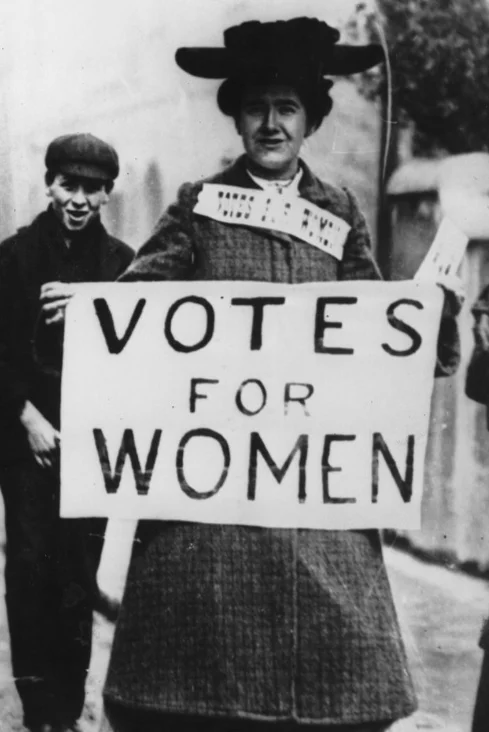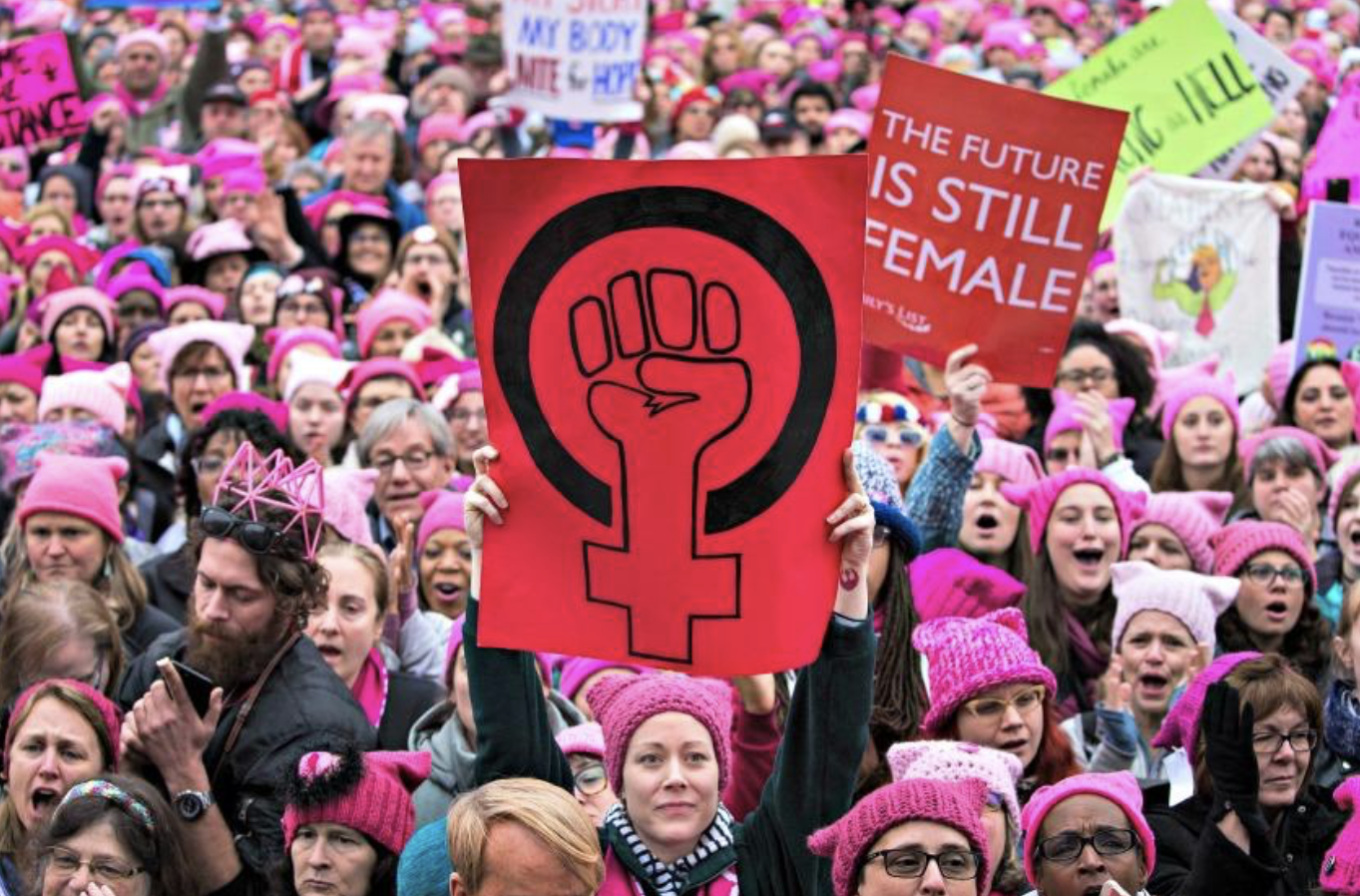Why are we still here?
This is a talk steeped in conflict. It begins confused and befuddled. This does seem to be how I begin most of my talks, perhaps also ending them not terribly far from this point, but the particular source of conflict at the preface here may well be familiar to many of you.
I work in an incredible environment. There are equal numbers of men and women. We hold similar positions of power and responsibility. Hour for hour, we get paid the same rates. It makes me wonder, am I simply fortunate to work in a place of such uncommon civility?
I then take a step further in, and look into the hearts of these men around me, and see that there are just as many men struggling under the tensions and pressures of modern existence. These, our comrades, are respectful, humble, vulnerable, supportive of all members of the team. They are certainly abused by our clientele just as frequently as we women. They are, to quote Henry James, men of dauntless decency. So what is the problem? Why are we here?
It is then that I tear off my blinkers, and look further afield. I engage with the world, and see:
· Women’s bodily autonomy being ripped from them, decisions made on abortions, and other female specific issues, by long tables of white, straight, Christian men
· Countless pieces written by women from every walk of life who have been otherwise silenced. The horizonless accounts of women being ignored, talked over, overlooked for jobs and opportunities. The oceans of things unsaid and things unable to be said. And when women dare to speak through these dense walls of silencing, they are not believed
· I see women still considered as the default homemakers, responsible for the vast majority of domestic, unpaid tasks, whose purpose is, in some corners of the world, considered to be (to paraphrase the magnificent Rebecca Solnit) to let men in and babies out, as though we were some biological elevator for the species
· I hear our elected world-leaders let slip their innermost thoughts, for example our own Prime Minister saying that sure, he wants women to succeed, but NOT if it’s at the expense of men (as if the reverse is inconceivable). And ,of course, the most powerful man in the world being a rapist, a misogynist, a racist, and a bully (and these are his better qualities)
· We see men having almost all the seats in power, on every Board, Company, in every political party
· I rage at the ongoing epidemic of violence against women – intimate partner, domestic, random violence
· I see the wage gap is REAL
· And then the rage multiplies to realise how much worse these things are for women of colour, different sexualities, differing cultural groups.
The problem is not just present, extant, hanging round the edges, it is HUGE. And we have to ask ourselves, why. Why the hell, in 2019, are we sitting here, still discussing this?
So I did what I usually do in circumstances of great confusion, I read a lot. I wanted to understand why all the feminist movements in the past have not achieved equity. What did these movements achieve then, and what do they mean now? What exactly is it we shouty women are on about? I needed to see the women on whose shoulders this unsatisfactory present situation stands.
The history of feminism is traditionally described in waves. There is a great deal of academic debate about what these waves constitute, but in summary we have got ourselves up to four.
The first were the suffragettes, the abolitionists. The bold women in crinoline and corsets. Tired of being little more than chattels with no rights, having enough of being considered absurd, laughable creatures at best, the property of men at worst, in the late eighteenth century the first wave was a societal movement for the emancipation of women. It achieved, to much bloodshed, suffering, imprisonment, the beginnings of voting rights, ownership of property, a few rights to their own bodies, legislation to reduce discrimination in the workplace. But you can only legislate so far. Change, freedom, equality was slow and miniscule, the backlash from men fierce.
A fair time after the first wave, women were granted a modicum of agency when the second world war marched in. A man’s war, declared by men. Women were briefly useful in this war, in factories, in production, and with that came certain freedoms. But soon after armistice, efforts were redoubled to remind women of their inferiority and their unquestioning place in the home.
So rolled in the second wave. This, beginning in the 1960s, hinged on sexuality. It was Simone du Beavoir, Gloria Steinham, the Second Sex, The Feminine Mystique. Roe vs Wade, and the oral contraceptive pill. It was sexual freedom, ability to make choices, family, workplaces. It was burning bras and anti-war. It moved things again. But it was three steps forward, two back. And it also suffered from being the feminism of the white middle class.
From here on in, the distinction between waves becomes debatable.
The third wave is the 1990s: women attempting to compete with men in the boardrooms, in suits, on male terms. It was tailored outfits and delayed fertility. It was also the first real idea of intersectionality, recognising that the layers of oppression apply not just to gender but colour, race and class. But still the micropolitics took its toll, with the realisation that the unbalanced allocation of domestic work would gnaw away at the principle of equality, as opposed to equity.
The fourth wave is now. It is the internet. It is #MeToo. It focuses on assault and harassment. Intersectionality is its beating heart. It is this conversation we are having right now.
The question of course, is if so much energy has been expended by so many women, so many of them heroic, over such a long time, is why are we here? Why has there been such kickback to something as simply human, as common-sense, as fundamentally decent as the fact that all people should have equal rights?
I have an answer to that, but before I speak of such it is worth understanding a simple point. Why are there still ‘manels’? Why are there so few women in positions of leadership? If you ask those in charge, they genuinely do not seek out to choose men over women, but will have a multitude of excuses – there were no women available, women are just not interested in committing the time, it’s a ‘meritocracy’, and other varied comebacks. To nut this out we can do an exercise involving Will Shakespeare and Virginia Woolf. In the interests of avoiding this transcript not becoming biblical in length and proportion, I will excise this, but recommend you read Woolf’s extraordinary treatise in A Room of One’s Own, and how she, better than anybody, is able to describe the thousand cuts that occur in the life of a woman, not experienced by men, that result in an endpoint of deep inequity. Please read it, then get in touch with me.
I have personal anecdotes a-million, where I have been looked through like glass, ignored, put down, deemed unworthy or simply ‘not that smart’, because of my gender. I give these examples a bit of a run in the talk. Over a lifetime these things add up. They are the endless micro-aggressions, the thousand cuts, the things that soak into your pores from the moment you first enter the knowing world. And they hurt. Every time. The extraordinary social commentator, Hugh Mackay, says there are ten desires a human has for a satisfying life, and the first is the most important, the non-negotiable. That is the need to be taken seriously. I know what it feels like not to have that.
To wind up, I want to return to the question, why are we here? When some things seem superficially fine, but on a global, everyday scale, the problem of inequity is STILL THERE.
The answer is kickback and disinterest. Feminism has always been seen as a woman’s problem. A woman’s job to fix. Men have not been engaged. At all. They may agree wholeheartedly, but they are not there at the groundroots trying to fix things. But, this is like trying to fix racism without involving white people. Not going to happen.
Thus, it is time for the fifth wave. It is time for humanism. Feminisation is humanisation. It is abundantly clear that when we raise the bar so that every body, every human, is equal, everybody wins. Everybody benefits. Workplaces, families, businesses, children. Feminisation is humanisation. So this conversation will never be over until we achieve this.
And, to conclude, it is time we got our shit together. We have no time to waste. No time to waste resources and discussions and idiocy on maintaining unnecessary power differentials, because we, our planet, have got something far worse barrelling straight at us, and we sure as hell had better be working together for our future. Thank you.
Dr Michelle Johnston




